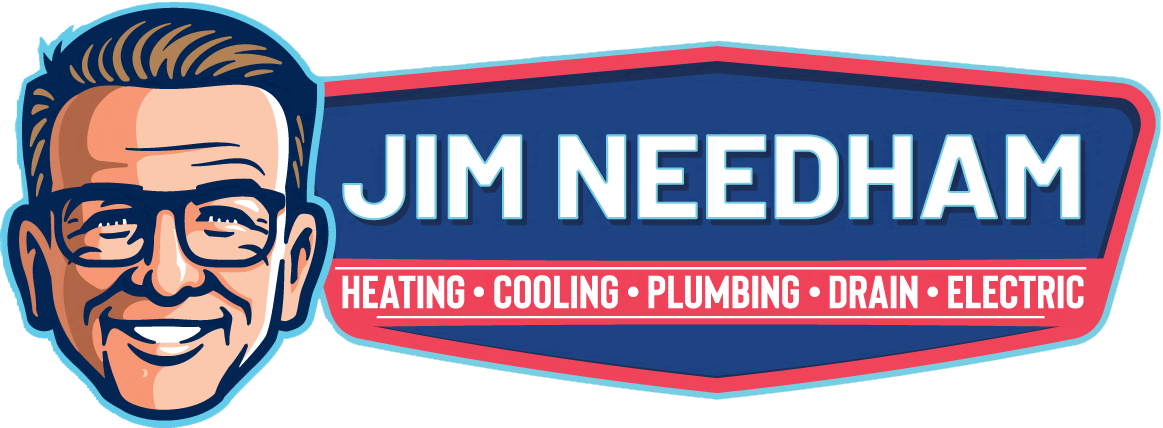When the hot summer weather sets in, you may be worried about rising energy costs. Furthermore, you may be concerned about simply overworking your air conditioning system and causing it to prematurely wear out. Fortunately, there are many great things that you can do to help reduce your energy usage and keep your air conditioning system usage in check.
Use Ceiling Fans
One of the best things that you can do to help reduce your energy usage during the summer is to supplement with ceiling fans. You want to put fans in each main room of your home. Make sure that they’re spinning in a counterclockwise direction that will force air down onto you. This will help create a wind chill effect that will make your body feel much cooler than the room actually is.
Block Out Direct Sunlight
When sunlight can pour into a window or door, it can raise the temperature by 10 degrees or more. Unfortunately, that rise in temperature is something that you’ll typically combat by turning down your air conditioning system. You can prevent this problem in the first place by simply blocking out any direct sunlight throughout the daytime hours. You can use curtains, blinds or even a specialized UV-resistant window film.
Landscaping can help to shade the south side of a home and reduce direct sunlight. Window attachments like plantation shutters or awnings can also help to shade incoming light or air. Plantation shades and a cross breeze can also cool your home without air conditioning in some cases.
Use Exhaust Fans
Humidity creates another set of problems for how you feel in your home. When humidity levels get high, your body’s natural process of sweating gets interfered with, and you overheat. The best way to combat humidity in your home is to simply prevent it from occurring to begin with. Whenever you’re taking a shower, be sure that you’re running your bathroom exhaust fan. Whenever you’re using your stove, make sure that you’re using your range hood to help direct that hot steam to the outdoors.
Avoid Producing Heat Indoors
Another great tactic for keeping the temperature down inside your home during the summertime is to avoid producing any heat. One of the most common places that you may think of when it comes to producing heat is your stove. Instead of using your oven or stove, consider preparing cold meals or cooking your meals outside on the grill.
Furthermore, instead of running your clothes dryer, consider drying your clothes outdoors. This will not only help prevent heat from occurring inside your home but will also reduce your energy usage by not having to run the dryer. Additionally, make it a habit to unplug appliances you’re not regularly using so they don’t sit there and produce heat while in standby mode.
Change Air Filters Regularly
The air filter on your HVAC system is imperative for filtering unwanted airborne toxins. However, as your filter does its job, it will become fuller and fuller with these airborne allergens. The fuller your filter gets, the harder it’s going to be for your air conditioning system to force air through it. To help ensure that your air conditioning system doesn’t get overworked, it’s important to regularly check the filter on your system. If you hold it up to a light source and can’t see through it, it’s time to replace it. Make sure that you have extra filters on hand so that you can replace them as soon as you notice that there’s an issue.
Get Annual Maintenance Service
During the spring months, you’ll want to call a professional HVAC technician to come out and service your unit. During this service, they’ll be able to lubricate moving parts, fix any electrical connection issues, and inform you of any potential problems they suspect with your system. This way, you can ensure that your air conditioning system is operating at its peak efficiency level for the upcoming summertime months.
Keep Air Vents Clean
If you have a centralized air conditioning system, you have vents in each room of your home. Vents need to be free from any obstructions. Avoid moving plants, furniture, and other items in front of these vents. Additionally, you’ll want to get your ductwork regularly inspected by an HVAC technician who can let you know when it’s time to invest in duct sealing or cleaning services.
Keep Your Outdoor Unit Clear
The outdoor condenser unit is an imperative part of your air conditioning system that is responsible for dispersing heat outdoors. For it to do its job correctly, you need to have at least three feet of open space around the unit. You want to make it a habit to check the outside unit for debris after every major storm and ensure shrubbery and other items are not against your unit when doing outdoor maintenance.
Seal Up Air Leaks
As your home settles over time, it’s not uncommon for air gaps to develop around your doors and windows. Unfortunately, these gaps can allow hot air from the outdoors to come into your home during the summertime. One of the best things you can do to prevent this from happening is to actively seal up any air gaps that you find. You can use weatherstripping or caulking to help seal up air gaps around doors and windows. Furthermore, you can use foam inserts around your light switches and outlets that have air gaps on exterior walls.
Beef Up Your Insulation
Think of insulation as a thick barrier that keeps the air outside from penetrating your home. The higher the R-value your insulation is given, the more resistant it is to air penetration from the outdoors. You want to ensure that you purchase insulation that meets or even exceeds the recommended R-value for your area of the country.
Consider Upgrading Your AC Unit
If your existing air conditioning unit is over 10 years old, then you’re missing out on the tremendous efficiency that modern-day cooling units can offer. Most air conditioners that are over 10 years old have a SEER efficiency rating of between 8 and 10. Modern-day air conditioners can offer SEER efficiency ratings of between 13 and 26. The higher the SEER rating, the more efficient the system will be.
Ditch Incandescent Lighting
If your home is over 15 years old, you likely have incandescent lighting. These are the old-school light bulbs that tend to produce a lot of heat while they’re on. You can easily prevent that unnecessary heat by upgrading those old incandescent lights for newer LED lights. LED lights don’t produce any heat while they’re on and they also provide more lighting than incandescent bulbs do.
Trustworthy AC Service
Jim Needham Heating Cooling Plumbing and Drain offers trustworthy air conditioning services for the entire Denver, CO region. We can also help with all of your plumbing, heating, drain, heat pump, and ductwork needs. Give us a call today to schedule your next service consultation. Ask us about maintenance, too!


